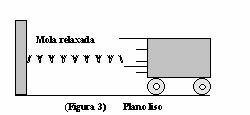Cholesterol is a fat that the liver produces and can be found in certain types of food. It is considered vital for hormone production and overall body health. However, when “bad” cholesterol (LDL) levels exceed the threshold, serious health problems such as cardiovascular disease and other complications can occur. Check out more information and learn how to reduce your body's "bad" cholesterol!
Read more: Study links Alzheimer's improvement to "good" cholesterol (HDL)
see more
Better Health in Two Days: The Surprising Effectiveness of End Workouts…
Ministry of Health expands HIV treatment with new drug…
Cholesterol: HDL and LDL
A high-density lipoprotein called HDL produced by the body is responsible for removing excess cholesterol from the body's tissues. HDL transports cholesterol crystals to the liver, where they are broken down and metabolized again to be thrown out of the body.
When this type of cholesterol is at a high level in the body, the risk of heart disease is reduced, in addition to having anti-inflammatory and antioxidant properties. However, unlike HDL, LDL is a type of low-density lipoprotein that transports cholesterol from the liver and intestine to human tissue cells.
This cholesterol is considered “bad” because, as levels rise, it causes it to build up in the lining of the arteries. This buildup can form fatty plaques in blood vessels and block blood flow, leading to heart and even brain problems.
Lower your bad cholesterol!
Avoid bad fats
For example, the intake of fried foods and fatty meats should be reduced because they are bad for blood circulation and contribute to an increase in cholesterol in the arteries and to atherosclerosis.
Reduce your excessive consumption of sugar
Know the ingredients well and read the nutrition labels carefully. Stay away from foods that contain disguised sources of sugar, such as corn syrup (rich in fructose) and some dextrins.
Fiber is a good source of fat
Fiber-rich foods sequester dietary fat in the gut, thereby reducing the absorption of cholesterol, fat, and sugar. In addition, good fats like olive oil, nuts and avocados are good for the circulatory system and reduce bad cholesterol, consequently, increase good cholesterol.



